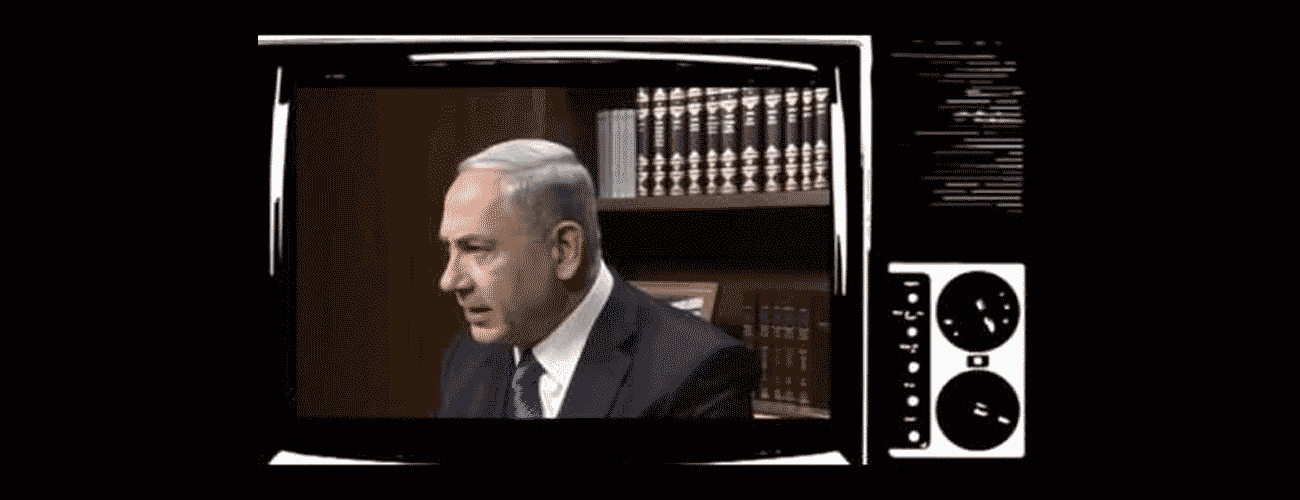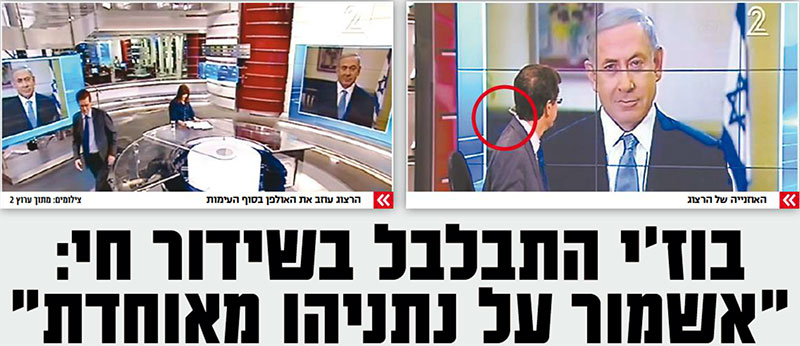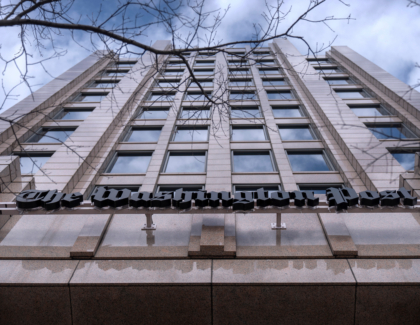Sign up for the daily CJR newsletter.
In the past few months, a veteran Israeli radio presenter lost half his airtime because he asked a top security official a tough question. Members of the foreign press were called before parliament twice to answer charges of “bias.” A lawmaker claimed that journalists were inciting violence to besmirch his nation’s good name, and The Washington Post’s Jerusalem bureau chief was briefly detained by police on suspicion of doing exactly that.
Israel’s top political correspondent describes the current media climate as “Bolshevik.” The 59-year-old Foreign Press Association of Israel agrees, calling the recent Knesset hearings a tactic “usually associated with authoritarian governments.”
Perhaps the comparison seems overwrought in a country with a rambunctious local media scene and hundreds of foreign correspondents, with the critical liberal voice of Ha’aretz and a big Al Jazeera office. Indeed, nobody is comparing the state of media freedom in Israel to that in Egypt (23 journalists locked up) or in NATO member Turkey (14 in jail).
Quietly, though, Benjamin Netanyahu, Israel’s long-serving prime minister, has extended his reach over every corner of the Israeli media. The country’s largest newspaper acts so openly as his mouthpiece that two cabinet ministers have likened it to Pravda, the Communist Party organ in the former USSR.
For the past year Netanyahu has also run the communications ministry, the first time since the 1970s that an Israeli premier has held that job for longer than a brief transitional period. He sets policy for the ministry, but is too busy to handle its day-to-day operations; after he formed his fourth government in May, one of his first acts was to fire Avi Berger, the respected (and non-partisan) director-general, and replace him with Shlomo Filber, who used to be Netanyahu’s chief of staff. Journalists at Israel’s largest online news portal, Walla, complain that critical stories are changed under pressure because the site’s wealthy owner fears running afoul of the prime minister.
“What the politicians are interested in is for us, the journalists, to know that they have their fingers on the red buttons,” says Amit Segal, the political correspondent for Channel 2, Israel’s largest network, referring to Netanyahu’s control over broadcast licenses and proposed reforms of the television industry. “And to know that they will press them.”
The foreign press, meanwhile, has faced mounting official criticism, with journalists mocked by the foreign ministry in a cartoonish video. Officials insist that the media are inherently biased against Israel. Yet the criticism is frequently based on scant evidence; more often, journalists argue, it seems to reflect a fear that Israel is losing the battle of ideas in Western countries that were long its staunchest allies.
Israel in 2016 finds itself, perhaps for the first time, unable to plausibly tell the world that its occupation of the Palestinian territories is a temporary affair. The diplomatic process is sufficiently comatose that even Thomas Friedman, a barometer for elite opinion, pronounced the two-state solution dead in a recent column. The European Union recently decided to start labeling goods produced in illegal Jewish settlements, a sign of growing impatience with the pro-settler government; the Obama administration is exasperated with Netanyahu, and has little interest in promoting another round of talks.
All of this has driven Israelis to circle the proverbial wagons, and the local press has become a brutal critic of its foreign counterpart. Last month, Khaled Abu Toameh, a reporter for the Jerusalem Post, wrote a thinly-sourced broadside that accused the foreign press of harboring “hatred for Israel and for Jews.”
A widely-shared 2014 piece by former AP correspondent Matti Friedman accused the press of paying excessive attention to Israel. Yet it also described Israel as “a tiny village on the slopes” of the Middle Eastern volcano—making it sound like a rather worthwhile and fascinating story to cover.
“There’s a real sense that Israel is hunkering down,” says one longtime wire service reporter, who asked to speak anonymously because of the sensitivity of the topic. “Attitudes are changing in Europe and in America, and Israelis are blaming us for that.”
Netanyahu’s first stint as prime minister lasted only three years. He blamed his 1999 defeat on the media, telling aides “I lost because I didn’t have a newspaper.”
Today he has two—even if he doesn’t own them outright. His friend and ally, the American casino magnate Sheldon Adelson, founded a free daily in 2007 called Yisrael HaYom (“Israel Today”). It became the country’s most popular paper, read by two out of five Israelis, according to a 2014 study. Adelson further expanded his media empire in 2014 with the purchase of Makor Rishon (“Primary Source”), a flagging conservative daily that now publishes weekly.
Adelson says he wanted to correct a deep bias in the Israeli media. “The newspaper [sic] there was so far to the left politically that it was misleading the public,” he told the Macau Daily Times in December. (Some Israelis wonder wryly how he would know: Adelson has never lived in Israel, nor does he speak Hebrew, though his wife is Israeli.)
“Maybe you believe him, maybe you don’t,” says Oren Persico, a reporter for The Seventh Eye, an independent media monitor.* “But he had a mission, and he did this on behalf of his close friend, the prime minister.”
It was an expensive mission. Yisrael HaYom does not disclose its finances, but a former business partner alleged in a 2011 deposition that it loses $3 million per month. The billionaire mogul uses his deep pockets to kneecap media rivals, particularly Yediot Aharonot, a popular tabloid that is relentlessly critical of the Netanyahus—not only the prime minister, but also his wife Sara, who is widely believed to play a major role in her husband’s administration. She once compared its publisher to Lord Voldemort, the villain in the Harry Potter novels.
A vendor distributes free copies of Israel HaYom in 2009 (Wikimedia)
A 2014 report by The Seventh Eye found that a full-page advertisement in Yisrael HaYom could be bought for one-third the price of a similar ad in Yediot.
Israelis call Yisrael HaYom “Bibiton,” a combination of Netanyahu’s nickname and the Hebrew word for newspaper. The Economist reported last year that its headlines are “routinely approved by the prime minister’s office.”
In its most egregious moments, the paper lives up to the Pravda comparisons. On the Saturday before last year’s election, Netanyahu and his top challenger, Isaac Herzog, faced off for a “mini-debate” on Channel 2. Herzog was in the studio; the prime minister spoke from his residence, looming over Herzog on a giant screen.
That Sunday’s Yisrael HaYom featured a photo of the debate on page three, with an accusatory red circle around the earpiece clipped to Herzog’s collar. “Herzog was the only interviewee with a headset,” it noted matter-of-factly, implying that someone—perhaps his campaign staff, perhaps the Channel 2 producers—was feeding him material.
The incriminating “headset,” of course, was the IFB earpiece that any television guest wears. Herzog couldn’t hear Netanyahu without one, and the prime minister surely had one of his own. But Herzog had a reputation for being indecisive and clueless. Yisrael HaYom found a way to reinforce it, two days before the ballot.
With two newspapers in hand, Netanyahu has now set his sights on the electronic media. Israel’s most popular network, Channel 2, is run jointly by two companies called Reshet and Keshet. The prime minister wants to break it apart, arguing that a split would encourage diversity and competition. It would also force both companies to hire their own news teams, at a cost of perhaps tens of millions of dollars, and strip Channel 2 of its status as the country’s leading evening news program.
“Israel is a small media market,” says Segal, the outlet’s political correspondent. “It would be better to have one big channel than two smaller ones that probably wouldn’t be viable.”
Channel 10, the country’s most liberal (and a thorn in Netanyahu’s side), narrowly escaped bankruptcy last year, owing to an arcane licensing dispute. It blamed the prime minister for its financial woes, because he blocked a deal to settle the channel’s long-standing debts. The specter of “reform” also hangs over the broadcasting authority, which operates the state-run Channel 1 and several radio stations.
On the other hand there is Channel 20, a new station launched in 2014 to offer programming about Jewish culture and heritage. It is positioning itself as an Israeli version of Fox News, complete with a fluttering flag graphic in the lower-left corner. The channel has been fined several times for airing news content, which its charter does not allow—including covering a big right-wing rally just days before the election. Yet it continues to push an agenda: After President Reuven Rivlin appeared at a December conference that also hosted a left-wing NGO, it accused him of “crossing a red line” and “spitting in the faces” of Israeli soldiers.
The digital media, too, are coming under pressure. Last year Ha’aretz reported that editors at Walla, the news site, had been instructed to post more positive coverage of the prime minister’s wife, Sara. Online media is outside the government’s purview. But Walla is owned by Bezeq, Israel’s largest phone company, which is currently engaged in sensitive talks with the government about reforming its lucrative landline business. “And who’s handling the negotiations? The communications minister,” says one Walla journalist, who was granted anonymity to speak openly about the company. “The editor in chief has asked to personally review any stories dealing with Netanyahu.”
Netanyahu has no quarrel with the foreign press; indeed, he’s more likely to appear on Meet the Press than Channel 2. Other members of his coalition tend to be less sympathetic.
The Knesset held its first hearing about the foreign media on February 2. It was ostensibly meant to discuss recent acts of violence against the press, like when Israeli troops smashed the cameras of two AFP photographers in September. (The army quickly dismissed the soldiers’ commanding officer.)
But the hearing also gave lawmakers a platform to attack the press. Michael Oren, an American-born freshman lawmaker, even claimed that journalists were inciting violence in the occupied territories, albeit without providing any examples. “We know with certainty about many cases that were staged and orchestrated,” said Oren, a former Israeli ambassador to Washington. “The media needs to ask itself if it is truly balanced.”
His words came to mind on Tuesday, when William Booth, the Washington Post bureau chief, was detained by police outside of Jerusalem’s old city. They brought him to a nearby police station for questioning, then released him; the incident ended within an hour, and the Israeli foreign ministry promptly apologized. “We do not arrest journalists,” Netanyahu said.
What was particularly striking, though, was the rationale: A civilian passerby apparently told the police that the journalists were “paying cash to Arabs” in order to “create provocations” outside the old city, exactly what Oren had alleged weeks earlier. “Was the civilian a member of the Knesset by chance?” joked Jonah Mandel, a correspondent for AFP.
@Benhartman was the civilian a member of the Knesset by chance?
— Jonah Mandel (@mandeljonah) February 16, 2016
The Knesset held a second small hearing on February 9. The proximate cause, according to Tzipi Livni, the subcommittee chair, was a headline published on CBS the week before, after three Palestinians armed with guns, knives, and explosives tried to carry out a serious attack in East Jerusalem. Two Israeli policewomen foiled the plot by killing the attackers. Both officers were hurt, and one, Hadar Cohen, died of her wounds that evening.
CBS News published a story with the headline “Three Palestinians killed as daily violence grinds on.” The foreign ministry spokesman immediately sent a screen grab of the headline to journalists, calling it “unprecedented chutzpah.” The image rocketed around social media, with Livni, a former foreign minister, accusing CBS of “choosing sides.”
@CBSNews pic.twitter.com/7yXvVk2Uej
— ציפי לבני (@Tzipi_Livni) February 3, 2016
“This time we won’t let it pass in silence,” Nitzan Chen, the head of the government press office, wrote on Facebook. “We will consider revoking press credentials from journalists and editors who are negligent in their work, and give headlines that are the opposite of reality.”
"שלושה פלסטינים נהרגו באלימות היומיומית שנמשכת" זו לשון הכותרת שבחרו רשתות בינלאומית להעלות לאחר פיגוע רצחני בשער שכם בי…
Posted by ניצן חן on Wednesday, February 3, 2016
It was, to be sure, a poor headline, casting the gunmen as victims. Yet it was also a single headline, written in the early-morning hours by a producer half a world away, and the network amended it a couple of hours later. CBS did not respond to CJR’s requests for comment.
Lawmakers asked Chen to provide other examples of media bias. He cited three other headlines, from CBS, CNN, and the BBC. That was the extent of his presentation: four faulty headlines, out of thousands filed since October. “I fail to see how the media has something to answer for in terms of systemic bias,” says Luke Baker, Reuters Jerusalem bureau chief and the head of the Foreign Press Association.
Israeli officials deny that there has been any undue scrutiny of the foreign press. Chen was quick to apologize for the Washington Post incident, calling it “unfortunate.” Livni, for her part, said that the Knesset hearings were not meant as a “field trial” for journalists, and that her main complaint is the headlines rather than the substance of the coverage. “It feeds the perception of one strong state, Israel, and the victims, the Palestinians,” she said.
The Jerusalem beat has always been heavily scrutinized, with pro-Israel groups like CAMERA that pore over every word written about the conflict. The pressure has grown in recent years, partly due to the advent of social media. Oren, the lawmaker, suggested that Israel’s advocates engage in online “shaming” of journalists (which, as any correspondent can attest, they need little encouragement to do).
How #media would report the 9/11 attacks based on their (miss)reporting of #Palestinian terror wave in #Israel. pic.twitter.com/gOjeweLDBz
— Arsen Ostrovsky (@Ostrov_A) October 15, 2015
But the heightened sensitivity also reflects an increasingly strident and nationalist tone in Israeli society—and here the criticism is not limited to foreign journalists. Razi Barkai, a veteran host on Army Radio, an Israeli army-run station that is nonetheless often a leading source of critical journalism, has been subjected to a withering attack by both politicians and the public because of a recent interview he conducted.
The macabre subject was how to handle the bodies of Palestinian attackers. His interviewee, Public Security Minister Gilad Erdan, said he did not believe they should be returned to families for burial. Barkai wondered whether their families were any different from the families of two Israeli soldiers whose bodies have been held by Hamas since the end of the 2014 war in Gaza.
It was an emotionally charged comparison, but it was nonetheless a valid question about a deeply controversial topic (the Israeli defense minister, for example, disagrees with Erdan’s policy). But the director of Army Radio quickly apologized to listeners, and announced that Barkai’s airtime would be cut in half, with the second hour given to Erel Segal (no relation to Amit), a right-wing commentator who once contemplated running for parliament with the ruling party. “It’s no secret that I support Netanyahu and the Likud,” he said last year.
“What was, a few years ago, the opinion of the hard right in Israel has now become the mainstream,” says Persico, the media reporter. “And I think journalists are looking around and seeing how the public opinion is moving.”
Israel prides itself on having the freest press in the Middle East, and often compares itself to the West in this regard. “As I can personally attest to you, the press in Israel is robust, free, very energetic, and free to say anything that it wants,” Netanyahu said on Tuesday during a press conference in Berlin with the German chancellor.
Yet the trends sending a chill through the media scene seem likely to continue. The foreign press—like left-leaning NGOs, which have also recently come under fire—will continue to draw the blame for Israel’s eroding diplomatic position in the West.
Netanyahu, meanwhile, is determined to become Israel’s longest-serving prime minister; some believe that his attempts to control the media are only beginning. “Netanyahu is almost obsessed with the media,” says Channel 2’s Segal. “Honestly, one should be almost amazed that he hasn’t done more yet.”
*An earlier version of this story incorrectly stated that The Seventh Eye is published by the Israel Democracy Institute. CJR regrets the error.
Has America ever needed a media defender more than now? Help us by joining CJR today.









